|
September 10th, 2018 changed my life forever. I knew somewhat what to expect from watching my boyfriend accomplish year one from the studio five months before. I understood that it was hard work, but I knew I could only understand fully by experiencing it personally. Through all of this, even when at my most nervous, I knew that I was in good hands. I had just recently moved down to LA in order to pursue film acting, and I knew that I needed all the help I could get, because I did not believe I was a good actor in the slightest. And spoiler alert. I ABSOLUTELY wasn't. I remember wearing an oversized floral men's shirt ( I liked the material enough to rock it), and a pair of worn down shorts. I put makeup on, but at the insistence of my sweetheart, I took my makeup off so I didn't have to worry about if I cried it all off.
Just some background into this studio. From this first paragraph you might say "Well, is this some acting class taught to desperate actors in WeHo that charges $500 a session to say you don't need to improve anything?" and to that, I will simply answer this. Nope. There you go. Anyways, back to it. The Taylor Acting Studio is an acting studio teaching pure Meisner in the heart of Burbank, California. It is the only Meisner school that has been backed by the Meisner estate, and has won Backstage Magazine's award for Best Acting Studio in Los Angeles for 10+ years, as well as a man who I well revere Alex Taylor, who has won Best Acting Coach for 7 years now. A little bit about Alex. Alex Taylor is the teacher of The Taylor Acting Studio. Alex trained with Sanford Meisner in the later stages of his life, and after Sandy's passing was strongly encouraged by Jimmy Carville, Sandy's life, business, and teaching partner to become a teacher and continue on the work of PURE Meisner, not just what Daniel likes to call "Strip Mall Meisner", which is diluted and misrepresented Meisner work. And let me tell you something. Jimmy's intuition that Alex would be a phenomenal teacher is straight on the nose. I have studied with many teachers, and being raised by a music teacher, I pay attention to how teachers teach. Heck, I almost became one. And without question, Alex is one of the best teachers I have ever met. He cares about every single one of his students, and wants for them to succeed and thrive. He is honest and not afraid to tell you truths that you might not want to hear. But he does so in a way that is full of grace and almost with a paternal quality that helps you understand that his words and his insight, if you choose to accept and implement them, are here to help you grow into who you are meant to be as a creator. If you care about your craft, Alex will help you grow it into something beautiful. I had heard about this school through my boyfriend, Daniel, who found it by what I believe to be the most miraculous thing to happen to the both of us. I wasn't sure what to think of this newfound class that my, at the time long distance boyfriend was joining, but I still cheered him on and showed my support. I had seen him act in a short film or two, and I thought he was already a pretty decent actor. Then one night three months into the training he left the FaceTime on so that I could see him and our mutual friend running the bare bones of their first scene. I am not exaggerating when I tell you that his performance was night and day from what his best work was not even a year before. In THREE MONTHS. Tears welled up in my eyes watching them run the most half way done work now that I look back at it. I was enamored. I followed each of them with my eyes and wished that I could pay attention to both 100% at once. They finished, and I clapped. I wanted to show my family. I wanted to show the world. And in that moment, I knew that this was powerful training. And that no matter what, I was going to do it. When June came around, I applied for an interview for year one. Once the appointment was set, I went into the cozy and comfy Burbank theatre feeling at home. Being primarily Musical Theatre trained, seeing a stage was a piece of familiarity. It was a hot and muggy day. I waited in the front half of the studio worried that I might interrupt another interview or something of the like. Eventually, Alex came in. We introduced ourselves, and started talking. He wanted to know why I was going into this, and so I shared my story and my background originally as a musician and vocalist. We talked about how I understood the importance of practice, and that it was a requirement each class to rehearse 3 hours. Then he asked me if I had graduated college. I smiled a half smile, and matter-of-factly said "Oh no, I didn't go to college. I'm 19.". A look of surprise came over him most likely due to the fact that I talked about majoring in high school. We began to talk about how he didn't want to mess me up by having me try all of these other places and then be even more messed up coming to him later. He asked me about my upbringing and the things that were important to me. I began to talk about my faith, and the desire to be real and authentic. Alex then put his hands on his lap, and said to me, "Okay, usually I wait to give you an answer and let you think about if you want to do this and I call to confirm if you've gotten in. But you're so young I really don't want to f*ck you up. You're in. We start in September." I left with a hug, and waited to be outside, to let my full excitement bubble to the surface. Daniel, waiting outside, picked me up, and I told him all about it in the car. He then said to me, Prepare to see your life change. This first part was intense. It was going back to trusting your instincts. It was a going back to child-like play. In the beginning, it was emotionally exhausting. Unlearning societal norms was hard. But going through it left me with an insatiable desire to know more. To be more. It all sounds so easy, right? Listening and answering. Trusting your instincts. The reality of doing rather than just thinking over and over and over. But I was missing something. Some things just weren't really resonating with me yet. I found myself struggling to hit the "mark" I had made for myself in my head. Then, one day in December, it all came to a halt. I had just been in a car accident, and it had left me with a concussion. Nothing too bad, but not too good either. It was a pain I hadn't truly experienced before. I went in to rehearse with my partner for our first scene, and I felt like I was bringing terrible work. I was self conscious the entire time, not taking her in, you name it. All the things I should have been doing (which were the bare minimum), I wasn't. While we were rehearsing, Alex came in and started watching our scene. And the nicest way I can put it is that the scene was ROUGH. He stopped us, and started to talk to me, honestly and tenderly. He was giving me my wake up call. I WAS BEING A PART TIME ACTOR. I was putting in the hours, sure. But I wasn't putting in the WORK that this craft so heavily requires. I wasn't being a full time actor, and it hit me hard. So hard in fact that it got me pretty emotional and I really took in personally what he was saying. I knew that I needed to be BETTER than what I was doing then. That first scene was all kinds of rough, but we somehow stumbled through it. I started to do more intentional actions every day that I possibly could. And I watched myself start to grow at light speed. Through this, I was finding that our work became a way to control my anxiety, and harness it to create beautiful and truthful art. The more that I did this work, the less anxious I found myself. The more that I was present in the world around me, and listening to the ramblings at work of strangers who just so desperately wanted to be heard. To be seen. When we came back, we had a check in with Alex about how we were feeling half way through thus far. He talked to me about what I will call now the "full time actor" debacle, and that he didn't realize how sensitive I really was until that day. I told him that it was a part of myself that I really resented because I react like that at times when I don't want to. And Alex said, "It is such an important part of who you are. Being sensitive like this is a gift." Through this, I slowly began to see my sensitive and bleeding heart (which I constantly tried to subdue) was one of the strongest things that I had to offer. Alex and this work really helped me accept it. I have a heart full of love that feels deeply. And once I began to really channel my instincts and my emotions, this got (and continues to get) even stronger. I am more in tune with my emotions than anything now. During that talk, we also talked about how my faith is so important in my life and that I should explore that in my work. When I did begin to explore that, something that I didn't expect to change as drastically as it did was in my connection between my craft and my faith. Through this work, I found that my relationship with Jesus not only could mix so beautifully with this craft, but that I saw new sides of who God is and was in my life so many years ago. I began to see myself having even more of an individual relationship with who He is and what He fights for today. I am now more in love and in awe with who He is, and who He will continue to be and I can thank Meisner for that. As the year began to draw to a close, I felt myself on fire more than ever. I was beginning to see and understand how much strength I really had. I started to love and accept myself completely. To embrace what made me who I was instead of stray from it. I saw my strong suits. I was starting to surprise myself in my work and it felt like I had just made a fire ball with my own hands. I fell madly in love with PLAYING on stage. I began to come into myself in ways that I never believed possible in such a short amount of time. And for the first time in a long time, I finally had felt like I had a place where I belonged. Now you might say that I just vomited my entire life story on this blog post. And I would have to agree with you. Training at the Taylor Acting Studio so far has been one of the highlights of my life thus far, and I will work hard in order to be able to have the honor of partaking in the knowledge of year two. I am proud to call myself the second youngest student to go through this training, and to know that the future ahead of me with the work I have already put in, as well as the work I intend to put in every single day, is bright. Thinking you might sign up for the summer intensive? Or the year one program? I guess I only have one thing left to tell you. Prepare to see your life change.
7 Comments
Usually, in a family, we all whether we like it or not have something that can brings us together; even in our most trying times. Something that doesn't necessarily have to make sense to the outside world and only needs to make sense with us. For my family, it has always been television. Since the beginning of our family's dynamics, we learned how to use television to be a de-stressor in our lives and continue to use it as such. Whether that be due to the belief of relating to the character, or simply getting lost in another story, I have been hooked. And if anything, taught to dream through the radiant rays from an otherwise black screen. There have been many who argue that television is increasingly bad for children, and that the statistics show grim results on parent-child relationships and their communication, as well as their own emotional and physical wellbeing. In The Real Reason Why TV Is Bad for Kids (1), written for Psychology Today, Dr. Amy Nathanson explains how reading a book with your children increases the parent-child interaction dynamic compared to television. In How Media Use Affects Your Child (2)written for Kids Health, they explain that it has negative effects on how the child views the world, as well as their physical health linking obesity to over four hours of screen time a day. They continue to say that it also causes problems in understanding stereotypes, and links to watching violent material promoting aggression and believing bad behavior is okay. And you know what? These can be absolutely correct on most cases of interaction with your parents and the wellbeing of the child. But none of these articles talk about how television can impact young performers and their ability to learn from what they witness in the right lens, and how even in these seemingly grim articles it can actually encourage learning and exploring curiosity about craft in other mediums. The first thing I ever learned from watching television as a young performer was something that you might not expect. I paid attention to how they costumed everything. The makeup, the hair, and everything in between. As I got older, this grew with more of a performer's knowledge, beginning to open my eyes to what it meant to send a message about what the character's personality was even like based on their bracelet. Or even a single button in the wrong place. I noticed the importance of every single set piece and the importance of how they designed the background art. How EVERYTHING told the story. But it also taught me something very important. Only if you were observant enough would you be able to catch it. For my family and performer peers, it became a conversation all in itself. "Did you notice the hearts behind Anna inside the door?" "Did you notice that every single costume has some sort of heart in it's design?" prompting stunning and stellar conversations with friends and family. We would watch anything behind the scenes or new trivia about the movies or TV shows that we were watching and regale the other on the couples onscreen married in real life, what they used to make the blood look more real, what they used in order to make sure that the dancers didn't hurt themselves so far up on those stilts, or that the director in the movie Love Actually had the children say "I hate Uncle Jamie" out of spite and jest for his own living brother. It became an intelligent and scholarly conversation from the point of pure intrigue to the desire to learn more. We learned what made Wes Anderson's head tick to Tim Burton's whimsical stylings that drew you in with its morbid yet sweet undertones that leave you wanting more. It inspired me to read book after book about hair and makeup for movies, how they created special effects in the Golden Age of Hollywood (before CGI) and many more. One of the next things that I learned from watching copious amounts of television from the lens of a performer was that of differing opinions in the industry, as well as keeping yourself safe from what I call "Character Cross Contamination". Through watching television, you learn that not everything is from the same side politically, and that some things teeter on other sides of political stances and real life issues. But the reason why isn't always to push an agenda. It taught me that: You can use movies and television to show a raw and real dramatized perspective on something that maybe you have never thought about in a certain way or have a hard time of seeing the other side. Shows like 13 Reasons Why started a conversation with friends and family that otherwise would have felt forced or coerced. We discussed why they said the words that they did, maybe why they changed the script and going over if that line was really important enough to the plot line from our own perspectives. If they did the issue justice. How their delivery could have been changed, if they earned the right to cuss in a certain scene, or how they could have done things differently from an understanding of someone in that world as an actor (meaning the performances). And THAT is exactly why the show was created. To start that conversation. Additionally through watching A Streetcar Named Desire, I learned of Vivien Leigh's change in personality after filming and how after playing Blanche she was never the same again in a negative sense. She played Blanche too closely to herself and the characters in her mind fused together. It taught me to really learn how to separate the characters I play from who I am, setting clear and hard boundaries to protect my own emotional wellbeing. To play the music of the show when I am going in, and my favorite songs when I'm driving out. To look at pictures of my family members and friends and the things that make me who I am. Another thing that I really benefitted from when watching television was that of poise, authenticity, and stage presence. From an early age, I began to watch facial expressions in outstanding situations. When I watched a Golden Age stunning actress fall madly in love with her debonair hunk of a husband, I noticed where her eyes went. I noticed how he held her. When I watched Mary Tyler Moore's performance in Ordinary People, I watched how she cried. How she didn't fully let herself cry in most situations where the others were much more open about their emotions. It became a gauge of whether or not it felt authentic. If it didn't feel authentic to me, I had a harder time getting into the show or to the movie. If their emotion in any circumstance didn't feel genuine, it to me was a learning experience in what NOT to do. I still study every single touch, every single glance. Every single silent car ride. If it works, I would ask myself, "What are they communicating with each other silently that makes this scene work?". If it doesn't work, then asking myself "How could they have improved their chemistry in this scene with one another or with their circumstances, and what can I learn from this in my scenes?". As I began to grow in my understanding of meaningful glances emotions and touch, I began to study posture and the importance in film or television. When you are confident, you walk or talk a certain way. When you are sad, you communicate that through certain mannerisms or your posture. To an untrained eye, it is more fuzzy. But as you continue to study these mannerisms, you begin to pick up the slightest of discrepancies. Someone who is AMAZING at this is my boyfriend Daniel. Daniel has his Bachelor's in acting for film, and on our first date, he was telling me my little mannerisms and what they told him about even the smallest feelings and impulses that I had. It was absolutely intriguing to me. Even the slightest lift in my voice told him something that I would have never even known about myself. As I began to watch more and more outstanding material, I began to see what he was talking about. When you are looking for it, it becomes obvious and second nature. As a vocalist primarily, I was taught many things about stage presence by watching television. Watching the way that these artists in these stadium performances would just strut their stuff and exude a confidence that made every person gravitate towards singing into their hairbrush when nobody was looking. I watched how they fought through sickness through documentaries especially about musicals (my main craft), and how they even amidst hard times found solace in just being out there and baring who they were to often millions of people without noticeable reservation. It inspired me even in my day to day life as a performer to have that same level of confidence in something I had worked so hard in. To let myself feel the music but also not be afraid to freely dance to it. And last but certainly not least, through television I learned so much about myself as a performer. Amidst all of the odds, the actors gracing the screen showed me that it was possible to be seen. That who you are is the best person that you can be, and that being a performer isn't just some pipe dream. I noticed similarities in celebrities that made me feel beautiful no matter what I looked like or what I wore. That being strong even in your craft doesn't make you less desirable. That there was hope for the underdogs, and that Hollywood always loves a good underdog story. Even though this topic is the shortest topic that I have in this article, that doesn't mean it is any less important; because it is more emotional and encouraging than anything. So, yes. TV according to research is not technically beneficial for children in terms of child development and the child-parent relationships that are essential to bonding. However, as a performer child, I learned one of the most important lessons through watching television with my family. It is what you choose to pay attention to that has the opportunity to make the experience a rich learning experience. My family chose to use television as a resource for our craft. A resource in how every piece and part comes together for the greater good. For learning to act authentically, yet also being cautious with keeping you and the predisposed character separated in a healthy way. And most importantly, stage presence and the ability to be your true self on stage. Sources: (1) Psychology Today.com. The Real Reason Why TV Is Bad For Kids. 19 October 2011. No Sponsor Found. https://www.psychologytoday.com/us/blog/turn-tv/201110/the-real-reason-why-tv-is-bad-the-kids (2) Kid's Health.org. How Media Use Affects Your Child . December 2016. www.nemours.org. https://kidshealth.org/en/parents/tv-affects-child.html Playing Heather Macnamara in Heathers the Musical was an experience that challenged many aspects of my performance. If you are not familiar with the show, the Heathers are the teflon, iron clad in social class ladies that at Westerburg High School you need to be friends with in order to be somebody. Heather Macnamara is known only for three things in the show: She's a Heather, she's a cheerleader, and she's LOADED. However, when it comes to who Heather Mac really is, you are left with a shallow assumption throughout the first act that she is no more than a superficial, air headed and one dimensional bully focused solely on her appearance. I was definitely hesitant to do this show at first, because I saw this show more as a comedy rather than a story to be told due to the interesting balance on campiness and serious moments (more on this later). However, I then was introduced to Heather Mac's song in the second act called Lifeboat in which she admits that she has experienced thoughts of suicide and how if the entire school is in a lifeboat, the weakest must go to make sure that the others don't sink. That if she says the wrong thing or wears the wrong outfit that she will be thrown over the side of the boat; therefore she must survive and go with what is happening around her, even if she herself does not approve of it. She explains that all of the constants in her life are now gone and now that she is under new ownership that she doesn't approve of. With this said, she concludes that she is the weakest link and must be the one to die to not only save everyone but rid the boat of the shameful person she is in the world of shoulder pads and perfect makeup. I remember listening to this song with tears streaming down my face. It was then that I realized that I needed to play this role. However, something took more precedent and in fact became imperative as time went on. I needed to redeem Heather Mac's story. I began this process of her characterization by going out to my local Walmart and buying a yellow notebook and yellow glitter glue as well as a ridiculously bright and obnoxious glittery, fuzzy yellow pen. If you have not gathered by this sunny list, Heather Macnamara's signature color in the show is yellow. What I have found is the more that I begin to put myself into the shoes of the initial read that I get on the character's interests before I dive in fully, the more levels the character has in the long run because you are giving them a humanity. And every character you play deserves a level of humanity as well as empathy. No matter how demented you may believe the character to be or how innocent they are. I gave her a middle name that after extensive research into when Heather Macnamara would have been born given the character breakdown fit perfectly (the show is set in 1989 and she is 17 at the time therefore I did research on popular names in 1972, that also fit with the characteristics of who Heather Mac is). After I did the basic exploration by feel of what I believe Heather Mac's interests were, I then watched the cult classic that inspired this musical of the same name. When I watched this movie and studied the work of Lisanne Falk playing this role, I uncovered important pieces of information about who Heather Macnamara was. For starters, Heather Macnamara explains that one of the foundational reasons for why she has had such a hard life was due to her parent's divorce in her past. In the movie, her characteristics were much different (as most movie to musical conversions are), however her delivery of lines was also different in a good varying way. With this, I asked my director if I was able to build on this knowledge of Mac's divorce experience from the movie and she accepted my proposal. I myself have not gone through a divorce. And especially because of how tender that topic can be, I wanted to make sure that if I was discussing their experiences that it would not be triggering them and hurting them, even if I was getting good results myself because that is extremely irresponsible. I was at such a loss for who to talk to about this topic off of the top of my head that I took a risk and wrote a Facebook post explaining everything and telling the women that were willing that their information would only be absorbed by me in order to bring the feelings and how divorce affects adolescent girls. I received many more responses that I hoped for, and because of this was able to add many different layers to this part of Heather Mac's story. One thing that I learned about how going through a divorce affects especially young adults is that some people feel a need to take the blame for things that are not inherently their fault. When their friends are fighting over something completely unrelated to anything, the person will try to take responsibility for the problem in order to make the fighting go away. I added this into Mac's character especially in her interactions with the two other Heathers subtly and how she tries to conform in order to keep the peace. She must conform everywhere in order to feel safe. And she by default then brings this to an entirely new level. No one can truly know who she really is but rather who she pretends to be. Along with this, another thing that I learned divorce affects (and I've also learned in the grieving process as well) is this thought process of "Well does anything really matter?" and with this, trying to fill that emptiness with sex, drugs and alcohol as a means of rebellion. This is something that is already written into the story, however her intentions on why she does this is a different rebellion than "Let's do this because we're bored/ because we've got to be COOL kids". She does this almost as a way of grieving. Every night, I would remind myself of the story of the Macnamara's divorce. I would replay memories that I had imagined down to the tee for Heather to vividly remember. Phrases that her parent's would say to describe the other, and moments that should have never occurred in a perfect world. Then, came the Diary entries. If you aren't familiar with the movie or the musical, Veronica the main character, writes her experiences and the woes of the story in her Diary periodically throughout the movie. I thought, if Veronica is writing in her Diary and you are able to see her inner monologue, how can I work on my inner monologue as a reference to myself? Thus I began writing Diary entries as Heather Mac. Every day that Veronica would write a Diary entry, (for example, September 1st, 1989) I would write one on the same day and explain my day from beginning to end, trying to recall as much as I could in my characters memory. This became EXTREMELY useful moving forward as I then was able to as I was getting into character remember these artificial memories to me but genuine memories to Mac. Now came one of the hardest parts about playing Heather Macnamara. In this show, there is comedy but also deep and serious moments throughout. Because this musical flips so easily from camp to extremely deep and meaningful, I needed to learn how to really make sure I could play both efficiently and at the right times - not just one or the other. This made it extremely hard for me to get into character and I would find myself having to spend even more time than usual trying to get fully in Mac's head. For example, right before the song in which I admit to my deepest darkest feelings, we sing an extremely comedic and happy song about how we needed to not be ashamed to drag all of our baggage into the light where everyone could see it. I go from jumping around with a ginormous smile on my face to now all of a sudden revealing my demons to an entire student body. After a while, I found ways to really get into character without being stuck in too comedic or too serious. And it came in the form of a rockin' playlist. I found that the more that I listened to 80's music that I believed that Heather Mac would be BLASTING that I would be immeshed in 1989 and that helped me see both the campy side and the serious side of the musical perfectly and attainably each time. It is a technique that I have found has gotten me deeply centered into who THEY are, not who I am. Playing Heather Macnamara was something that I will never regret, nor will I ever forget. And to do so alongside such talented performers was such an honor. I was challenged every single night to portray the most truthful version of Mac I could possibly portray by everyone. I had an amazing support system of cast members and crew who believed in me and trusted my choices and that was so incredibly beautiful. After the show almost every night I would have someone come up to me and tell me how at first they believed Heather Mac was so shallow and so unimportant, and then as the show went on they saw who Heather Mac really was, even without Lifeboat being the center of the realization. And every night I would smile because I realized. I to at least one person redeemed Heather Mac. And as a performer, that is what I live for. Playing Cinderella in Stephen Sondheim's Into The Woods was a lifechanging experience. I learned so much from her character and how that character relates to me as a person. Her story is so much more complex than anybody can read in a storybook. She portrays a quiet strength that intensifies as the story continues and she figures out more about her identity and who she is meant to be. She is feisty and will protect the ones that she loves.
This role really influenced my thought processes as an ingenue that as ingenues we are able to play roles that are powerful and can make an impact on other's lives even if you aren't naturally a belter. You are powerful in your own way. In order to play this role most realistically and honorably to the people who have experienced the loss of a mother in which I myself have never experienced, I talked with women that had lost their mothers at younger ages and I used the insecurities that some of these women have felt into Cinderella's character and some of her physical characteristics and her vocal patterns. From this, I really began to play with the importance of not feeling beautiful because without a mother to affirm that in a daughter, even if it is just a mother figure, not knowing about what makes you really beautiful can make you feel so lost. In the beginning of the show I wanted to play Cinderella as someone who was smart however sacrifices the dreams and desires that she has for others to her downfall. However she also values the feeling of being beautiful to someone. She doesn't realize this until she attends the ball and for the first time in her life since her mother's passing has someone see the beauty in her. I made her really rely on that fact and really chase that even though she isn't really sold on the prince, that she will never find someone who will make her feel beautiful. And due to her life being uncontrollable in nature, I wanted for Cinderella to really try to avoid the anxieties of making her own decisions and for her to figure out with time that no matter what you choose you may miss out on something. Cinderella in Act 2 to me really portrayed a motherless mother figure and even though she is struggling with serious life changes, she realizes that she must be there for the people around her. She loses everything that makes her significant and even though this happens to her, I wanted to play her as someone who by the end of the show does in fact gets what she wants. Even if it doesn't seem like a conventional journey. For me as a performer personally, I came alive during Act 2. I believe the second that that baby was placed in my arms, I was reminded every night that this was my purpose in life. I got deeper and deeper into the story of Cinderella every night during this act because I played her in a way that she became less 2 dimensional and began to really show her humanity more outwardly. It felt like I wasn't only singing No One Is Alone to just Little Red Riding Hood but as a reminder to Cinderella. That even when you're feeling so alone in a life transition, that no one is really alone. I will never forget this role and how much it has impacted me. |
AuthorKatherine O'Day Archives
June 2019
Categories |
Proudly powered by Weebly

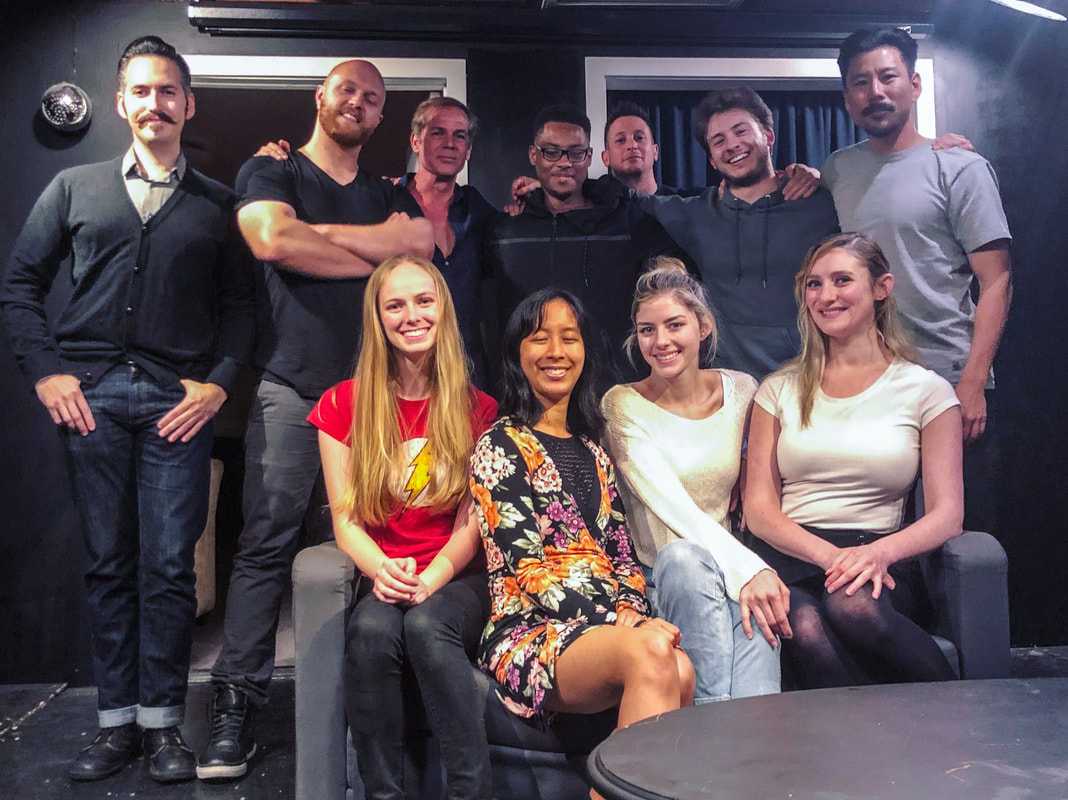
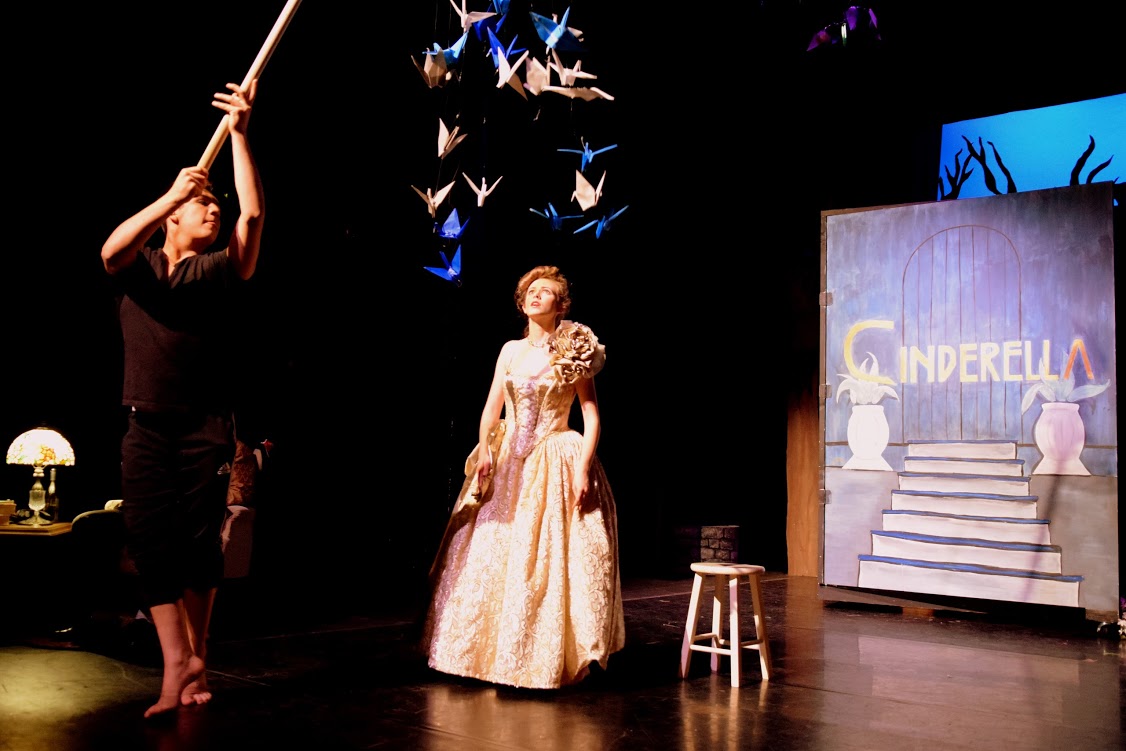
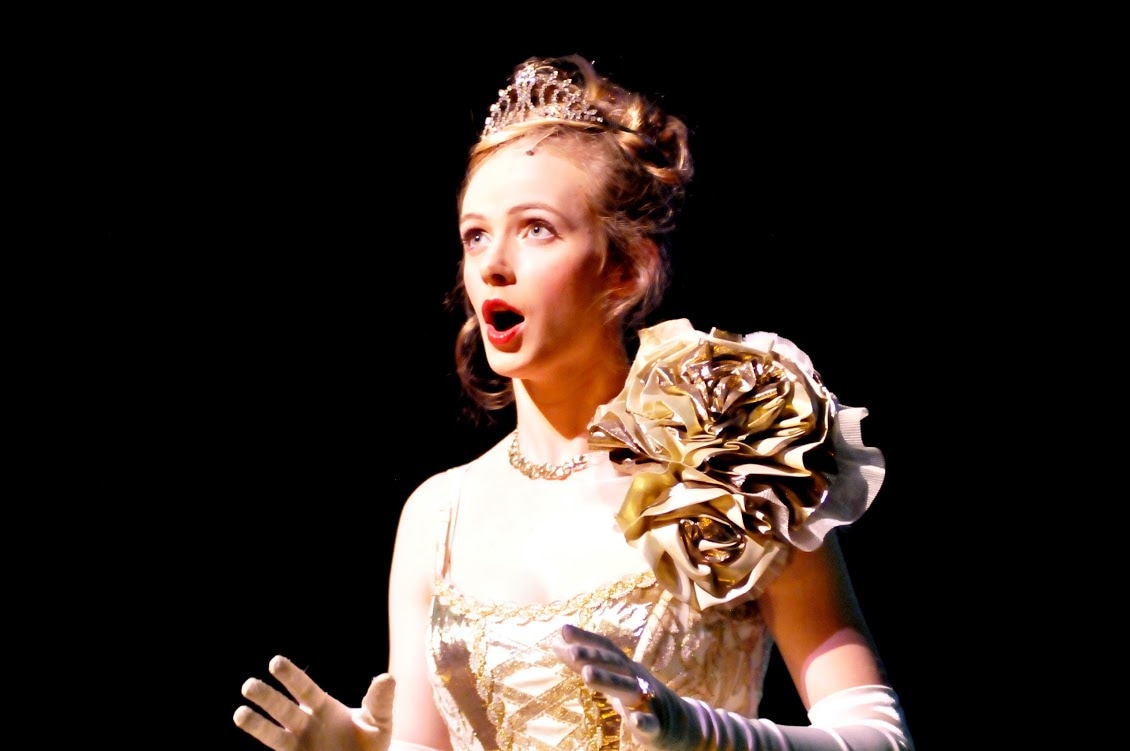
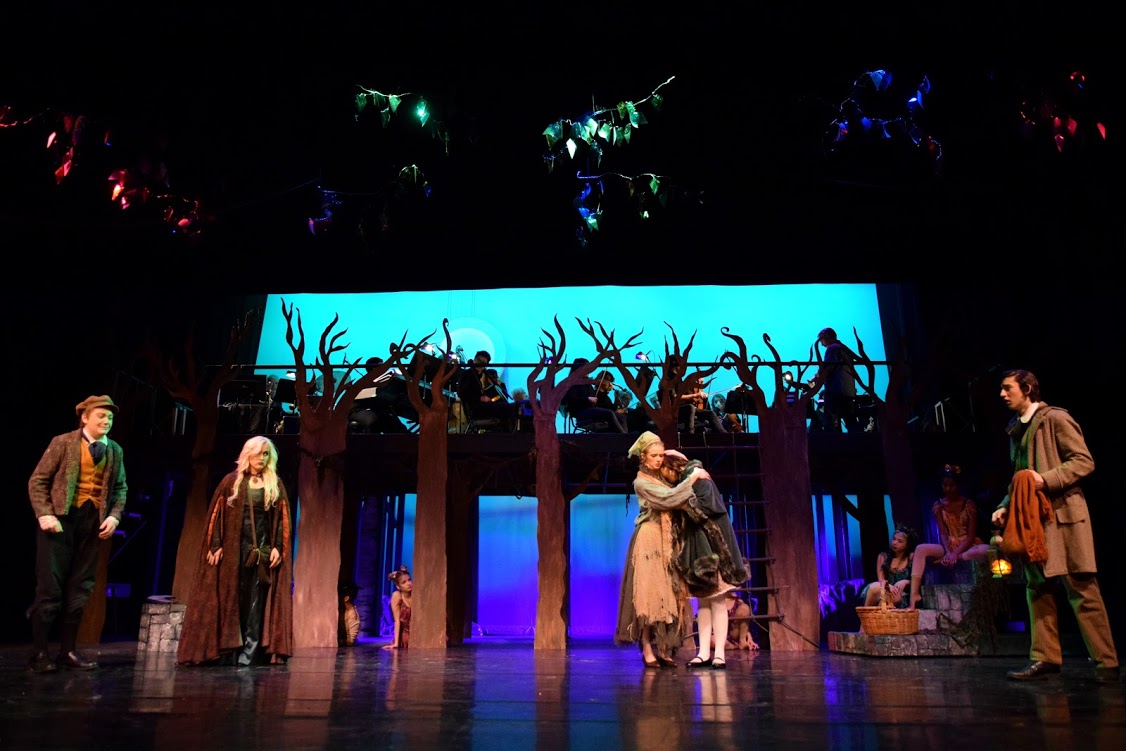
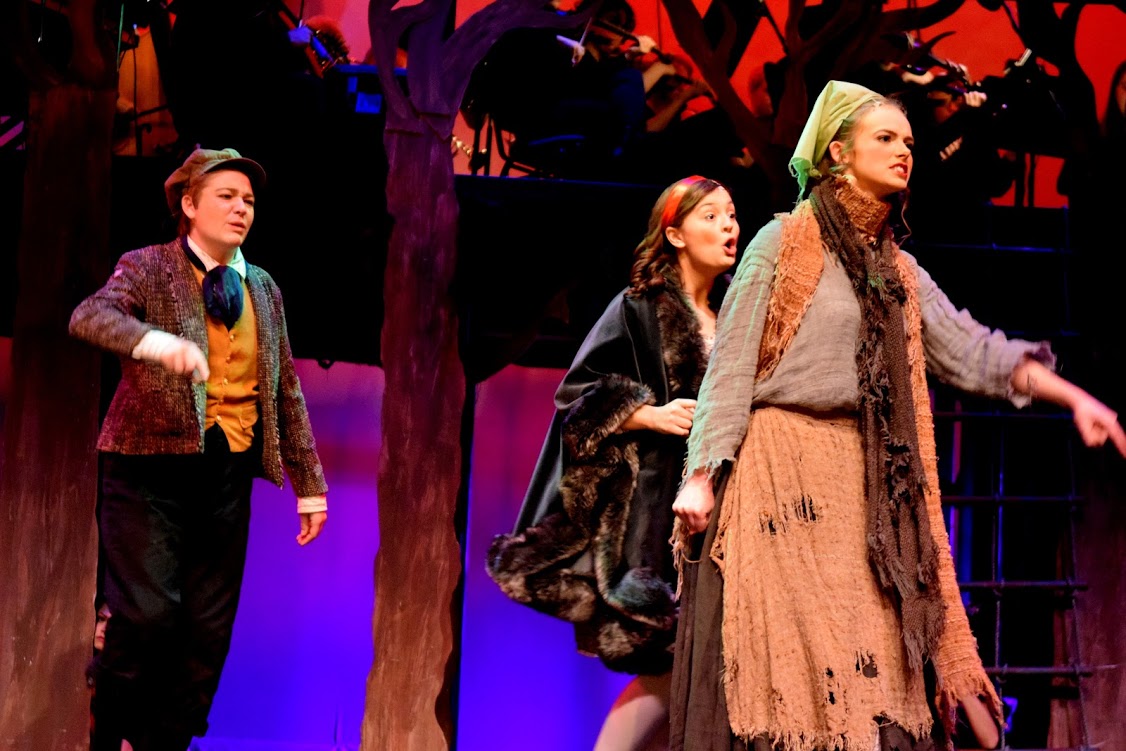
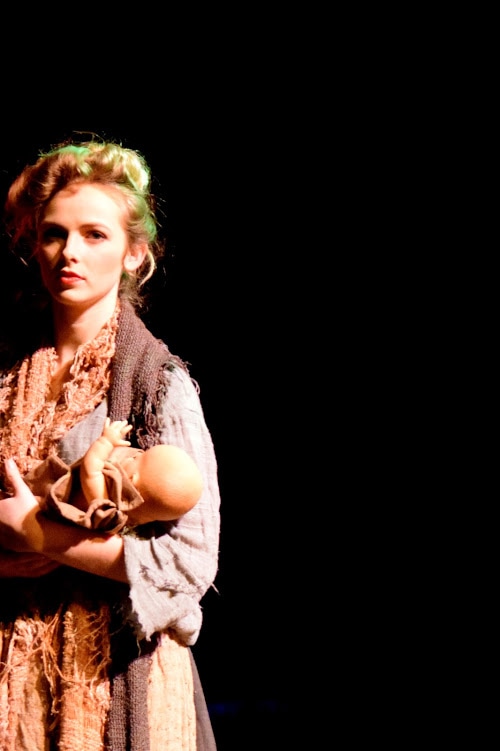
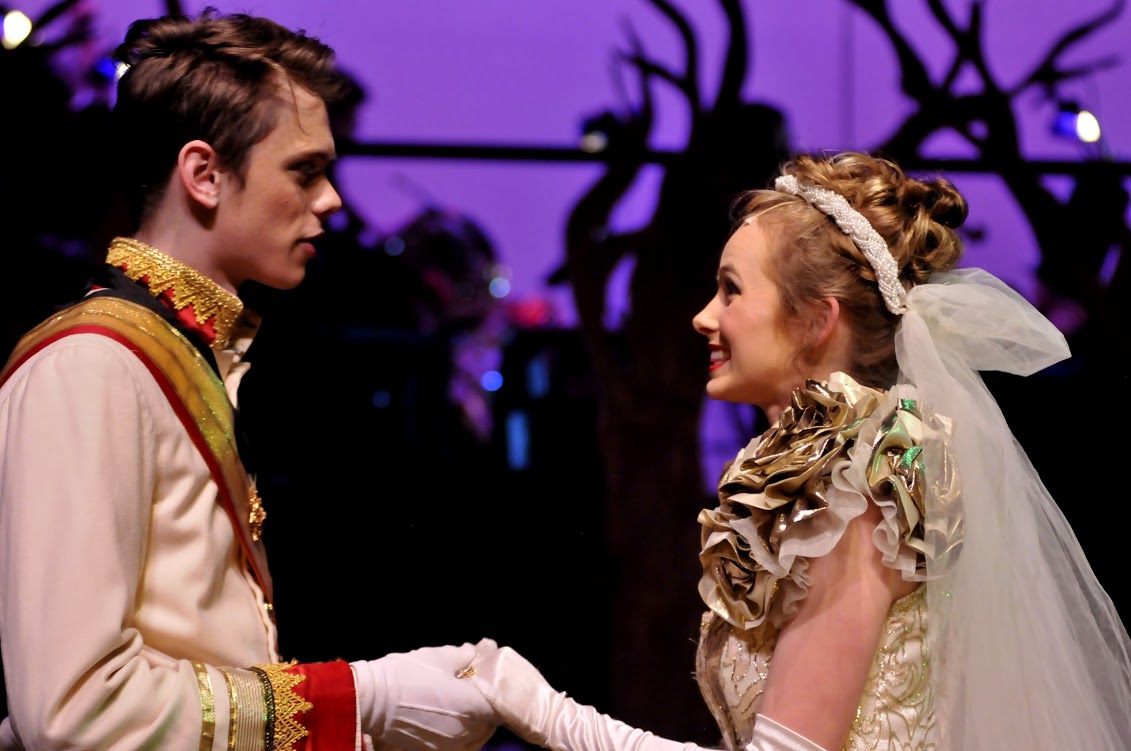
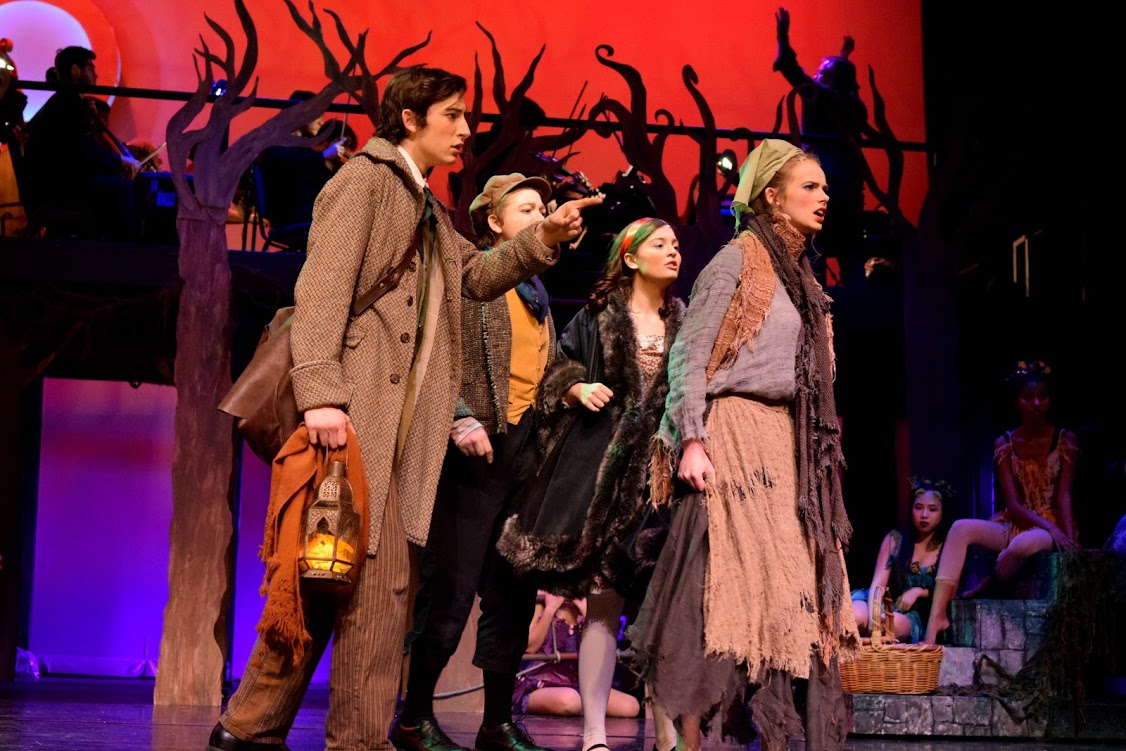
 RSS Feed
RSS Feed